Exosomes: The Future Of Medicine And Skincare

Exosomes are emerging as the new buzzwords, holding immense potential for rejuvenating and revitalizing our skin. These tiny, membranous vesicles, about 30-100nm in size, act as messengers carrying precious cargo like proteins, lipids, and even RNA between cells. In the domain of derma, or the deeper layers of our skin, exosomes play a crucial role in several key functions.
Functions of Exosomes:
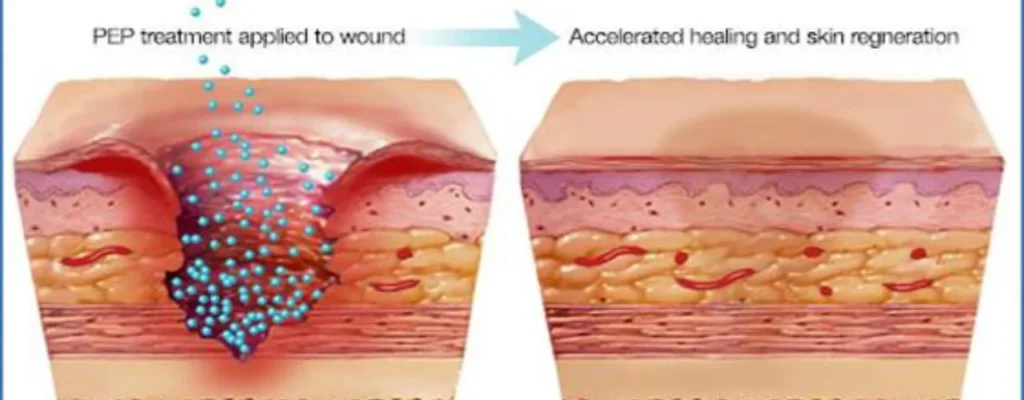
1. Wound Healing: Imagine exosomes as tiny first-aid responders. They rush to the scene of injury, delivering growth factors and other molecules that stimulate the proliferation of fibroblasts, the cells responsible for collagen production. This, in turn, accelerates wound healing and minimizes scarring.
2. Anti-Aging: As we age, our skin loses its youthful plumpness and elasticity. Exosomes come to the rescue here too! They can stimulate the production of collagen and elastin, the proteins that provide our skin with its structure and bounce. This helps to reduce wrinkles, fine lines, and other signs of aging.
3. Pigmentation Regulation: Uneven skin tone and hyperpigmentation can be a major cosmetic concern. Exosomes can help address this by regulating melanin production, the pigment that gives our skin its color. They can also reduce inflammation, which can further contribute to hyperpigmentation.
4. Hair Growth: Hair loss can be a frustrating experience for many people. Exosomes offer a glimmer of hope here as well. They can stimulate hair follicle growth and improve blood circulation to the scalp, both of which can contribute to thicker, healthier hair.
5. Scar Reduction: Scars can be a permanent reminder of past injuries. Exosomes may be able to help minimize their appearance. By promoting collagen production and reducing inflammation, they can help scars become less noticeable over time.
Risk and Complications:
While the potential of exosomes in derma is exciting, it’s crucial to be aware of the potential risks and complications associated with their use. Here are some key points to consider:
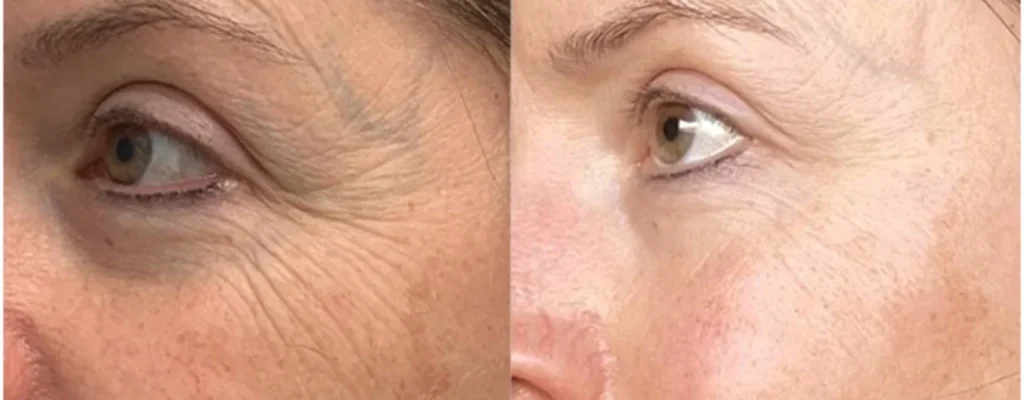
1. Safety and Regulation:
- Currently, there are no FDA-approved exosome-based cosmetic products in the market.
- Studies on their long-term safety and efficacy in humans are limited.
- Regulatory frameworks for exosome-based products are still evolving, creating uncertainty and potential risks.
2. Source and Purification:
- The source of the exosomes (e.g., stem cells, cultured cells) can impact their properties and potential risks.
- Thorough purification and characterization of exosomes are essential to ensure their safety and efficacy.
- Contamination with unwanted molecules or cellular debris can pose health risks.
3. Immune Response:
- Introducing foreign exosomes might trigger an immune response in some individuals. This could lead to inflammation, allergic reactions, or other adverse effects.
4. Unintended Effects:
- The complex signaling pathways mediated by exosomes are not fully understood. Unforeseen consequences or off-target effects are possible.
- Overdosing or inappropriate use could lead to unintended consequences for skin health.
5. Ethical Considerations:
- The source and production of exosomes raise ethical concerns regarding cell sourcing, animal welfare, and potential exploitation.
- Transparent, ethically-sourced exosomes are crucial for responsible development and use.
Recommendations:
- Consult a dermatologist or healthcare professional before trying any exosome-based cosmetic product.
- Be cautious of exaggerated claims and unproven benefits.
- Look for products from reputable companies with transparent sourcing and production practices.
- Choose products with limited claims and focus on well-established benefits of skincare ingredients.
Remember, research on exosomes in derma is promising, but it’s important to approach their use with caution and remain informed about the potential risks and uncertainties.
Additional Resources:
- Exosomes in Dermatology: A Promising Approach for Skin Rejuvenation: https://pubmed.ncbi.nlm.nih.gov/37371095/
- Exosomes and Their Potential Applications in Dermatology: https://pubmed.ncbi.nlm.nih.gov/31678573/
- The Role of Exosomes in Skin Wound Healing: https://pubmed.ncbi.nlm.nih.gov/33263376/
- Exosomes for Anti-Aging: A Promising Approach: https://www.ncbi.nlm.nih.gov/pmc/articles/PMC7769639/
- Exosomes and Their Potential for Pigmentation Regulation: https://www.mdpi.com/2079-9284/7/4/90
Exosomes For Skin Rejuvenation:
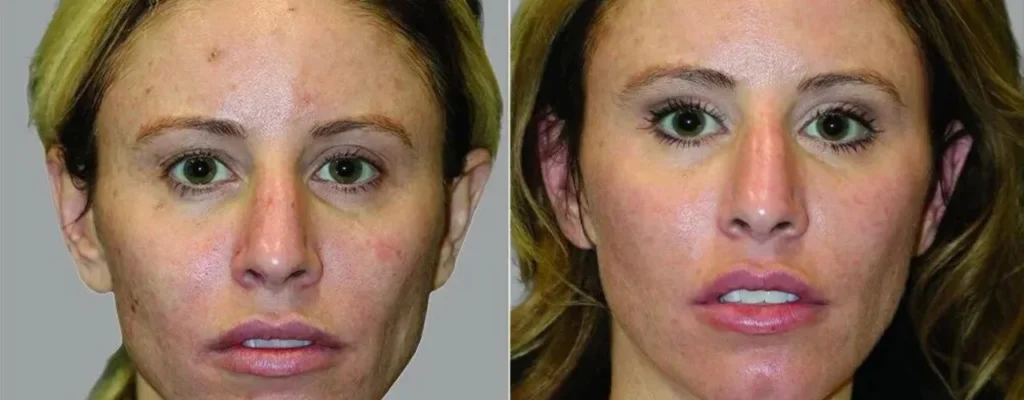
Exosomes, the tiny messengers of the cellular world, are generating buzz in the realm of skin rejuvenation, and for good reason! These membranous vesicles, packed with proteins, lipids, and even RNA, hold immense potential for revitalizing your skin from within.
Here’s a peek into the world of exosomes in skin rejuvenation:
Promising Applications:
- Collagen Boost: Imagine exosomes as tiny architects, delivering the blueprints for collagen production. This can help combat wrinkles, fine lines, and restore skin’s youthful plumpness.
- Wound Healing: Like cellular first-aid responders, exosomes can accelerate wound healing and minimize scarring by promoting skin regeneration.
- Pigmentation Regulation: Uneven skin tone? Exosomes can help! They may regulate melanin production and reduce inflammation, addressing hyperpigmentation for a more radiant complexion.
- Hair Growth: Want thicker, healthier hair? Exosomes might be the answer. They can stimulate hair follicles and improve scalp blood circulation, encouraging hair growth.
Beyond the Hype:
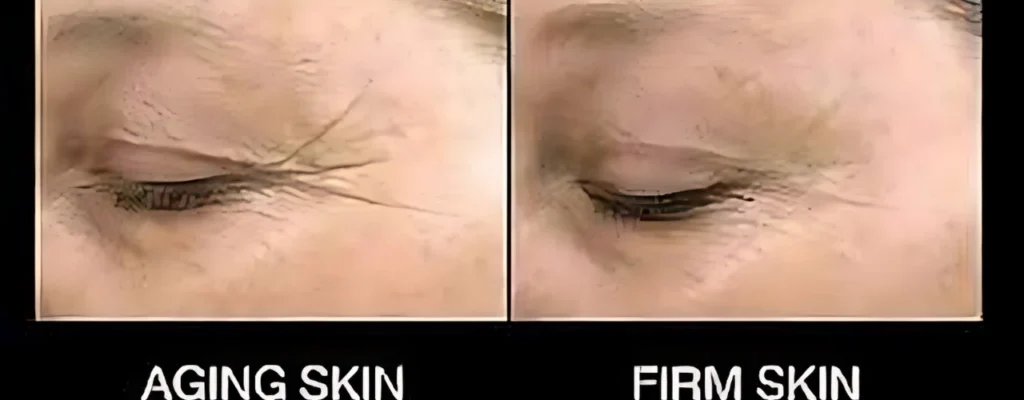
While the potential of exosomes is exciting, it’s important to approach them with a realistic lens. Remember:
- Early Days: Research on exosome-based skin rejuvenation is still in its early stages. Long-term safety and efficacy studies are ongoing.
- Regulation: Currently, there are no FDA-approved exosome-based cosmetic products in the market. Be cautious of unproven claims and unregulated products.
- Ethical Considerations: The source and production of exosomes raise ethical concerns regarding cell sourcing and animal welfare. Choose products from companies committed to transparency and ethical practices.
Safe Steps Forward:
- Consult a Dermatologist: Before diving into the world of exosomes, seek guidance from a qualified dermatologist. They can assess your skin’s needs and recommend evidence-based approaches.
- Focus on Science: Don’t fall prey to exaggerated claims. Look for products with scientific backing and clear information about the source and purification process of the exosomes.
- Start Slow and Gentle: Introduce exosome-based products gradually and monitor your skin closely for any irritation. Remember, sustainable skincare is key.
Exosomes may be the future of skin rejuvenation, but approaching them with informed caution and realistic expectations is crucial. As research progresses and regulations evolve, we can expect even more exciting developments in this promising field. Until then, prioritize ethical practices, science-backed solutions, and the guidance of qualified professionals to help your skin glow with confidence.
Exosomes For Hair Regeneration:
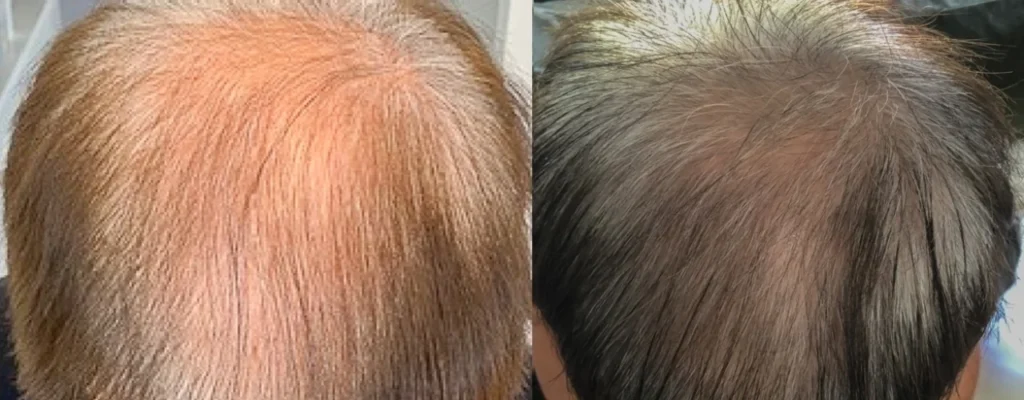
Exosomes are emerging as exciting players in the realm of hair regeneration, holding promises for thicker, healthier locks. These tiny vesicles, carrying cellular messages and growth factors, could potentially revolutionize how we address hair loss. Here’s a deeper dive into how exosomes might work their magic on your scalp:
Promoting Hair Growth:
- Stimulating Follicles: Exosomes can deliver growth factors and signaling molecules directly to hair follicles, kickstarting the anagen (growth) phase and potentially extending its duration.
- Increasing Blood Flow: Improved blood circulation to the scalp is crucial for nutrient delivery to hair follicles. Exosomes may promote angiogenesis (new blood vessel formation) near follicles, boosting hair growth.
- Combating Inflammation: Scalp inflammation can contribute to hair loss. Exosomes’ anti-inflammatory properties might help calm inflammation and create a healthier environment for hair growth.
Beyond the Hype:
It’s important to remember that research on exosomes for hair regeneration is still in its early stages. While the potential is promising, here are some factors to consider:
- Limited Evidence: Long-term clinical studies on the efficacy and safety of exosome therapy for hair loss are currently scarce. More research is needed to establish strong evidence.
- Regulation: Currently, there are no FDA-approved exosome-based hair loss treatments. Be wary of unproven claims and unregulated products.
- Cost and Availability: Exosome therapy for hair loss can be expensive and is not yet widely available. Access may be limited depending on location and healthcare policies.
Navigating the Future:
If you’re intrigued by the potential of exosomes for hair regeneration, here’s how you can approach it responsibly:
- Consult a Dermatologist: Seek guidance from a qualified dermatologist to understand your hair loss case and explore evidence-based treatment options, including potential research trials involving exosomes.
- Prioritize Evidence: Do your research and choose clinics or practitioners offering exosome therapy based on scientific evidence and ethical practices.
- Set Realistic Expectations: Understand that exosome therapy is not a one-size-fits-all solution and may not guarantee complete hair regrowth. Be patient and follow your dermatologist’s guidance.
While excitement surrounds exosomes in hair regeneration, it’s crucial to approach them with realistic expectations and informed caution. As research progresses and regulations evolve, we can expect clearer evidence and wider accessibility for this promising technology. Until then, prioritize holistic hair care, maintain a healthy lifestyle, and consult with qualified professionals for personalized guidance. Remember, healthy hair starts from within, and a balanced approach is key to unlocking your crowning glory.
Exosomes For Wound Healing:
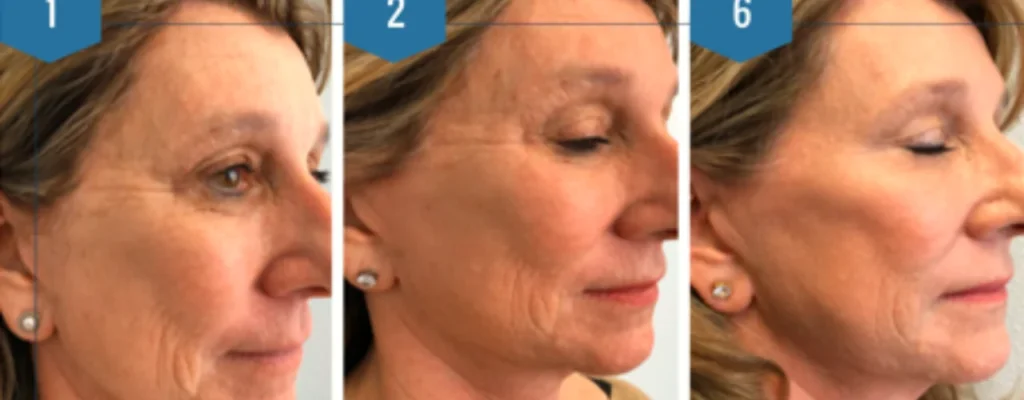
Exosomes, the tiny messengers of the cellular world, are emerging as promising players in the exciting field of wound healing. These membranous vesicles, packed with proteins, lipids, and even RNA, possess remarkable abilities to accelerate the healing process and minimize scarring. Here’s how these miniature marvels might work their magic:
Boosting the Healing Symphony:
- Cellular Orchestra: Imagine exosomes as conductors, delivering vital instructions to different cell types like fibroblasts (collagen builders) and endothelial cells (blood vessel creators). This orchestrates a faster and more efficient healing response.
- Growth Factor Express Delivery: They act like tiny couriers, transporting essential growth factors to wounded tissues. These factors stimulate collagen production, cell migration, and blood vessel formation, essential steps in wound closure.
- Inflammation Calmers: Healing isn’t just about building, it’s also about balance. Exosomes possess anti-inflammatory properties, helping to calm down excessive inflammation that can impede healing and lead to scarring.
Beyond the Hype:
While the potential of exosomes is exciting, it’s important to keep a realistic perspective:
- Early Stages: Research on exosome-based wound healing therapies is still in its early stages. Long-term safety and efficacy studies are needed before widespread clinical adoption.
- Regulation: Currently, there are no FDA-approved exosome-based wound healing products. Be cautious of unproven claims and unregulated products.
- Ethical Considerations: The source and production of exosomes raise ethical concerns regarding cell sourcing and animal welfare. Choose products from companies committed to transparency and ethical practices.
Navigating the Future of Healing:
If you’re interested in exploring exosomes for wound healing, here are some responsible steps:
- Consult a Healthcare Professional: Seek guidance from a qualified doctor or wound care specialist. They can assess your wound and recommend evidence-based treatment options, including potential clinical trials involving exosomes.
- Prioritize Evidence: Don’t fall prey to exaggerated claims. Look for products or therapies backed by scientific research and conducted with ethical practices.
- Realistic Expectations: Understand that exosome therapy is not a magic bullet and may not be suitable for every type of wound. Be patient and follow your healthcare professional’s guidance.
The future of wound healing is brimming with possibilities, and exosomes are certainly a fascinating chapter in that story. As research progresses and regulations evolve, we can expect safer, more effective, and accessible exosome-based therapies to revolutionize how we heal. Until then, prioritize proper wound care, maintain good health practices, and consult with qualified dermatologist for optimal healing outcomes. Remember, even the tiniest messengers can make a big difference in the journey towards recovery.
Additional Resources:
- Exosomes and Their Bioengineering Strategies in the Cutaneous Wound Healing and Related Complications: Current Knowledge and Future Perspectives: https://www.sciencedirect.com/science/article/pii/S0022202X21020881
Conclusion:
While still in their early stages, exosomes hold immense promise across various fields, from accelerating wound healing and minimizing scarring to potentially boosting hair growth and rejuvenating skin. However, it’s crucial to approach them with a cautious lens, prioritizing evidence-based applications, ethical practices, and realistic expectations as the research evolves and regulations solidify. Remember, they offer exciting glimpses into the future of personalized medicine and transformative therapies, but navigating this journey responsibly is key to unlocking their true potential.
Derma and Dental Clinic:
Derma & Dental Clinic stands out with its team of experienced doctors backed by scientific evidence in their chosen fields. Their diverse range of medical-grade procedures offer tailored solutions for various skin and dental needs. You can confidently book your consultation online or by phone and embark on your journey towards healthier skin and a radiant smile.
Location: Bahria Town, Lahore
Specialties: Dermatology and Dental Care
Website: derma.pk
For Consultation:
- Online at Dermatology.pk
- WhatsApp: +923205999650
- Phone: 03041115000



